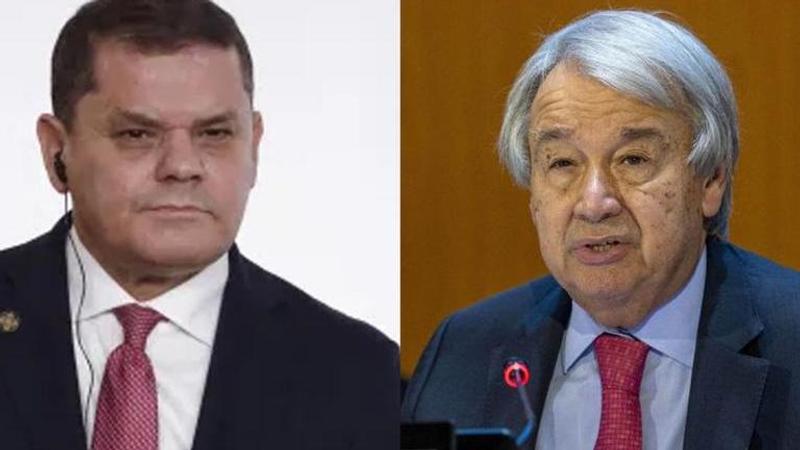Published 13:43 IST, March 6th 2022
UN chief calls for 'urgent dialogue' over political polarisation in Libya
UN Chief held telephonic talks with the Abdul-Hamid Dbeibah in view of the worsening situation caused by severe political polarisation in Libya.

In view of the worsening situation caused by severe political polarization in Libya, United Nations Secretary-General Antonio Guterres held a telephone call on Friday with Abdul-Hamid Dbeibah, Prime Minister of the Government of National Unity of Libya, to discuss the latest developments in the country, Guterres' office said on Saturday. Guterres expressed deep concern over the current political situation in Libya and called for an 'urgent dialogue' to find a consensual way to establish a stable government in Libya as it carries significant risks for Libya's hard-won stability, said the press office said in a readout.
According to the press release, the secretary-general stressed the need to maintain a calm atmosphere and reiterated the United Nations' strong rejection of the use of violence, intimidation, and hate speech to polarise voters. On Tuesday, the Libyan House of Representatives, the country's parliament, granted confidence to a new government to replace the Dbeibah-led government. The new government was sworn in on Thursday. Earlier, in September 2022, the House of Representatives withdrew confidence from Dbeibah's government and the House unanimously voted to appoint Fathi Bashagha as Libya's new Prime Minister.
UN seeks to find consensual way to establish democratic govt in Libya
Dbeibah did not welcome this move and said his government would remain in office until an elected government is established. He proclaimed the idea of holding general elections in June and accused the House of Representatives of approving the new government "without achieving quorum" during the session. He said leaders from his party would continue to work and prepare for elections in June. On Wednesday, Guterres expressed deep concern over Tuesday's vote in the House of Representatives, which included unfair means to select Bashagha as the new ruler of Libya.
The secretary-general expressed displeasure and said that the political situation in Libya is concerning as it has come to light that the vote fell short of the expected standards of transparency and procedures and included acts of intimidation prior to the session. While speaking with Dbeibah on Friday, Gutress said the current stalemate requires urgent dialogue to find a consensual way forward. He reiterated the UN's full support for mediation efforts such as those carried out by his special adviser on Libya, Stephanie Williams.
(With Inputs from ANI)
(Image: AP)
Updated 13:43 IST, March 6th 2022




